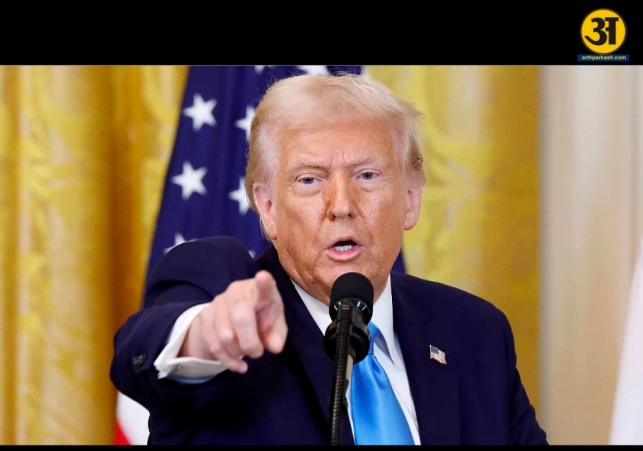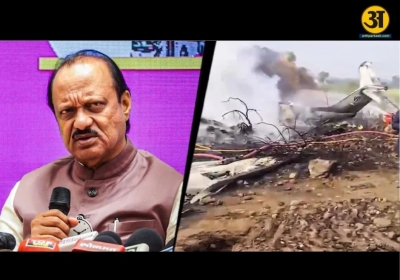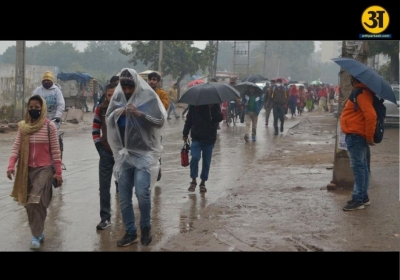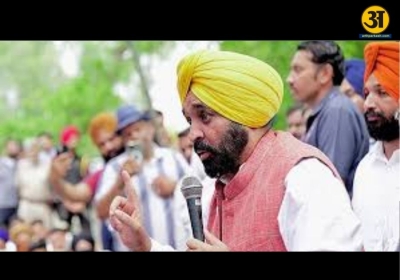
Trump admin halts student visa interviews for social media checks
Donald Trump admin pauses new student visa interviews over social media vetting plans: report
The US government, under President Donald Trump, has paused new student visa interviews worldwide. This pause is part of a plan to require all foreign students coming to study in the US to undergo social media checks before their visa is approved. According to a report by Politico, documents signed by Secretary of State Marco Rubio ordered consulates not to schedule new interviews for student visas until further instructions are given. The government expects to release more guidance in the coming days.
This decision affects students applying for F, M, and J category visas, which cover most foreign students and exchange visitors. The pause means fewer interviews will be conducted, and the processing of student visas will slow down. Many US universities rely heavily on foreign students for tuition fees and financial support. If student visa processing is delayed, these universities may face serious financial problems because fewer foreign students would be able to join.
President Trump’s administration has been focusing on greater control of foreign visitors, especially students, because of concerns about antisemitic activities on campuses. These concerns have grown after Israel’s war in Gaza. The administration claims some protests on university campuses have involved antisemitic actions linked to the conflict.
To tackle this, the US government started to screen visa applicants’ social media accounts. This means they will review applicants' posts, likes, and other activity on platforms like Facebook, Twitter, Instagram, and others. The government aims to identify and prevent individuals involved in antisemitic activities or any actions considered a threat to national security from entering the country.
This policy is an expansion of earlier rules introduced by the Trump administration. Since April, social media screening has been mandatory for visa applicants suspected of being linked to protests or other activities against Israel’s military actions. The Department of Homeland Security’s immigration agency, USCIS, stated that the move is necessary for “enhanced identity verification, vetting, and national security screening.” It relies on an executive order signed by President Trump, called ‘Protecting the United States from Foreign Terrorists and Other National Security and Public Safety Threats,’ as the legal foundation.
Criticism and future challenges, balancing security and rights
While the government says social media checks are essential for safety, many human rights groups and experts have criticized the policy. They worry that the rules may be applied unfairly or target certain political views more than others. People fear that social media screening could be used to punish those with opinions the government does not agree with, rather than focusing on real security threats.
These critics argue that social media posts often lack clear context, and misunderstanding or misinterpretation could harm innocent applicants. They say the policy risks violating privacy and freedom of speech, which are important rights in a democratic society.
The pause in student visa interviews also creates big problems for US universities. Foreign students pay high tuition fees and contribute to the diversity and academic environment of many colleges. If fewer students get visas on time, universities may lose a large source of income. This could lead to cuts in programs, staff layoffs, or even closures of some departments.
In addition to universities, foreign students themselves face uncertainty and anxiety. Many have planned their studies carefully, with visas and travel arrangements already in progress. Delays or denials of visas can disrupt their education and career plans, causing financial and emotional stress.
This situation also affects the US’s global reputation as a top destination for higher education. Other countries that welcome foreign students without such strict social media checks may attract more students instead. The US risks losing talented students to its competitors.
ALSO READ: Saudi Arabia clarifies stance on lifting 73-year alcohol ban ahead of FIFA World Cup 2034
In March, the Trump administration had already extended social media checks to green card applicants who are already living in the US. This means not only new applicants but also some immigrants currently in the country must have their social media activity reviewed. The government says this is part of ongoing efforts to protect national security.
Overall, this new policy shows the Trump administration’s strong approach to controlling who enters the US, especially foreign students. The government claims the move is necessary to prevent antisemitic actions and keep the country safe. However, the policy faces significant criticism for potentially violating rights and disrupting education.
How the government balances these security concerns with protecting individual freedoms will be important to watch in the coming months. Meanwhile, US universities and foreign students must prepare for continued uncertainty around visa processing.





